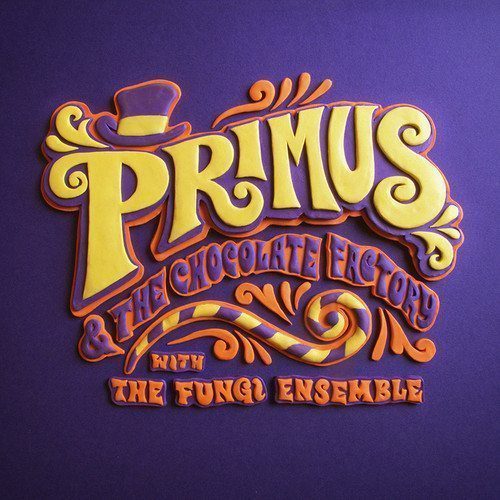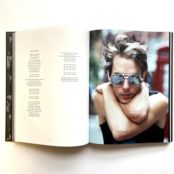[dropcap style=”font-size:100px; color:#992211;”]F[/dropcap]or revisionist hipsters and over thirty clone focussed parents alike the byword in childhood memories is Roald Dahl’s 1964 book Charlie and the Chocolate Factory.
Twisting the vectors of reward, power and morality the story reflects the complexity of childhood within a genre that often condescends through simplification.
On one level the story follows a common fairytale route where the protagonist must overcome an external challenge to become a hero. In Charlie’s case he wants chocolate but can only get it by appeasing a strange man’s morality. Dahl’s brilliance is in exposing the machinery of this internal/external dynamic as Charlie progresses through various tests and how our hero watching his companions fail becomes normalised through fear.
In the end whether he learns that ‘to his own self be true’ or that power is arbitrary and perverse depends on the reader. After all, Wonka makes an irresistible product and kills those who act as he’s conditioned (he’s famous for selling candy) them to, to act on their instincts means death.
The opacity of the Wonka motives makes it possible for creative interpretations and searching online uncovers legions of theories. From adult concepts filled with youthful exuberance to strident Marxist critique (Wonka owns a factory that produces desire). Great stories resonate across a wide bandwidth. Onto this stage enter our players Tim Burton and Les Claypool. In an almost cyclical creative dialectic Tim Burton, dissatisfied with the Mel Stuart’s 1971 adaptation, remakes the story in 2005, an act which demanded a response from Claypool:
“Look, I love me some Tim Burton, when he writes his own stuff, and I respect what Johnny Depp has done over the years. Hell, Ed Wood is one of my favourite films, but that (Charlie and the Chocolate Factory) is just unwatchable and believe me I’ve tried…twice as a matter of fact,”
Les says,
“Even my kids hated it”.
Unwilling for the last canonical word to be an unworthy film, Claypool reunited Primus to redress the balance and recalibrate Charlie’s world to his, and he hopes your, perspective:
“The recording is about my early perception of the original Willy Wonka and the Chocolate factory film.
The thought was that I wanted to take on some kind of sacred cow, and the whole Wonka thing was a massive part of my childhood…
It just seemed like the perfect project to take on, in part because those tunes are all so strong.”
And he has.
Primus manages to recapture the movie’s weirdness through analogue sounds and a distinct lack of effects, matching the pre-CGI grit, grime, and glitter of the original. The gobstopping formula conjured by Claypool is to play the weird line very straight. This plays out with few of the clichés of weirdness that normal musicians might employ, rather allowing the innate weirdness of the musicians to shine through very direct sounding performances.
The whole album (with the exception of ‘Farewell Wonkites’, which is a loving homage to Pink Floyd) sounds like it was deliberately recorded with few overdubs (if any), and a reliance on an almost acoustic sparse feel.
“The idea was to combine the Frog Brigade and Primus, and do this record,” says Claypool. “I think like a good portion of the planet, we were all pretty put off by the remake of the ‘Willy Wonka’ movie – the Tim Burton version. I really wanted to pay homage to a film [1971’s Willy Wonka and the Chocolate Factory, starring Gene Wilder] that was very important to me as a kid and very influential to me musically. So that’s what we did. And as opposed to just going in and recording the songs and playing them the way they are in the film, we twisted them up a bit…twisted them up a lot.”
Is this Primus’ most industrial work to date? Yes. From the opening of ‘Hello Wonkites’, the particular types of repetition all sound like clockwork rhythms punctuated by screeching metal, and greasy yawning groans punctuated by Claypool himself, intoning Newley’s lyrics as through a foreman’s tannoy.
“The notion wasn’t so much to go in and redo the soundtrack note for note as much as it was to utilize the classic elements of the music, yet try to reflect some of the darker undertones of the Roald Dahl books, because when you read those books, there is an eerie and somewhat menacing aspect implied.”
‘Cheer Up Charlie’, with violins reminiscent of Angelo Badalamenti’s soundtrack to David Lynch’s Straight Story is sweet and, whilst a high point for the album, is the one instance where Claypool’s delivery falls short. His unique nasal voice can’t quite summon the heart the song demands. It creates distance where we should be drawn closer to the fire, shedding tears for the downtrodden little guy. The song isn’t a write off though and as it progresses, undertones of ‘Piggies’ by the Beatles throb under the main song, giving a strange contradistinction to the lyrics themselves.
During the film ‘Cheer up Charlie’ is heard as Charlie’s mother, played by Diana Sowie, watches the downtrodden Charlie departs into the dark streets, singing:
Some day, sweet as a song
Charlie’s lucky day will come along
Till that day
You’ve got to stay strong Charlie
Up on top is right where you belong
Look up, Charlie
You’ll see a star
Just follow it and keep your dreams in view
Pretty soon the sky is going to clear up
Charlie,
Cheer up Charlie,do
Cheer up Charlie
Just be glad you’re you.
– ‘Cheer up Charlie’
However, Claypool’s Beatles reference brings in overtones of George Harrison’s:
Have you seen the little piggies
Crawling in the dirt?
And for all the little piggies
Life is getting worse
Always having dirt to play around in
– The Beatles ‘Piggies’
It’s a strange turn on a theme within a story that might be otherwise happy and fancy free, and mirrors the sort of dark twist we find within the movie, the books and the recent trends within Primus’ own musical canon. 2014 has seen two releases by Claypool that delve into others’ material (Duo De Twang as well as Charlie), and this album marks the release of the band’s darkest material since Pork Soda.
The tone of Charlie is more introspective and confronting that fans might expect of Primus. A band characterised by belly laughs and technical exuberance. Guitarist La Londe seems particularly under-utilised here, and nowhere to be seen is his celebrated fretboard wank de force as seen on previous Primus recordings (for example Wynona’s Big Brown Beaver). Though it must be said, similarly toned down are the exuberances of both Claypool (bass) and Alexander (drums). Yes this is mature restraint, but in the context of Primus – what a waste.
There is artistic sweetness here amongst the saccharine dangers of childhood memories, the album finds success because Primus have delivered an honest artistic statement that sits well with the original. Coupled with an weirder exploration of Dahl’s themes the album is worthy of inclusion in the canon even if it falters outside of that context, and will almost certainly fail to find a wider audience. Something that I doubt Claypool will lose sleep over as you can imagine he sees this as something that sullied Burton’s adaptation.
The question of whose revision of Charlie and the Chocolate Factory rings truest is moot. Each will have its advocates. However, if Burton’s aim was to make a deeper weirder (rather than wider) version, then Claypool wins the day.
His chocolate is the darkest yet.

Editor, founder, fan.




















